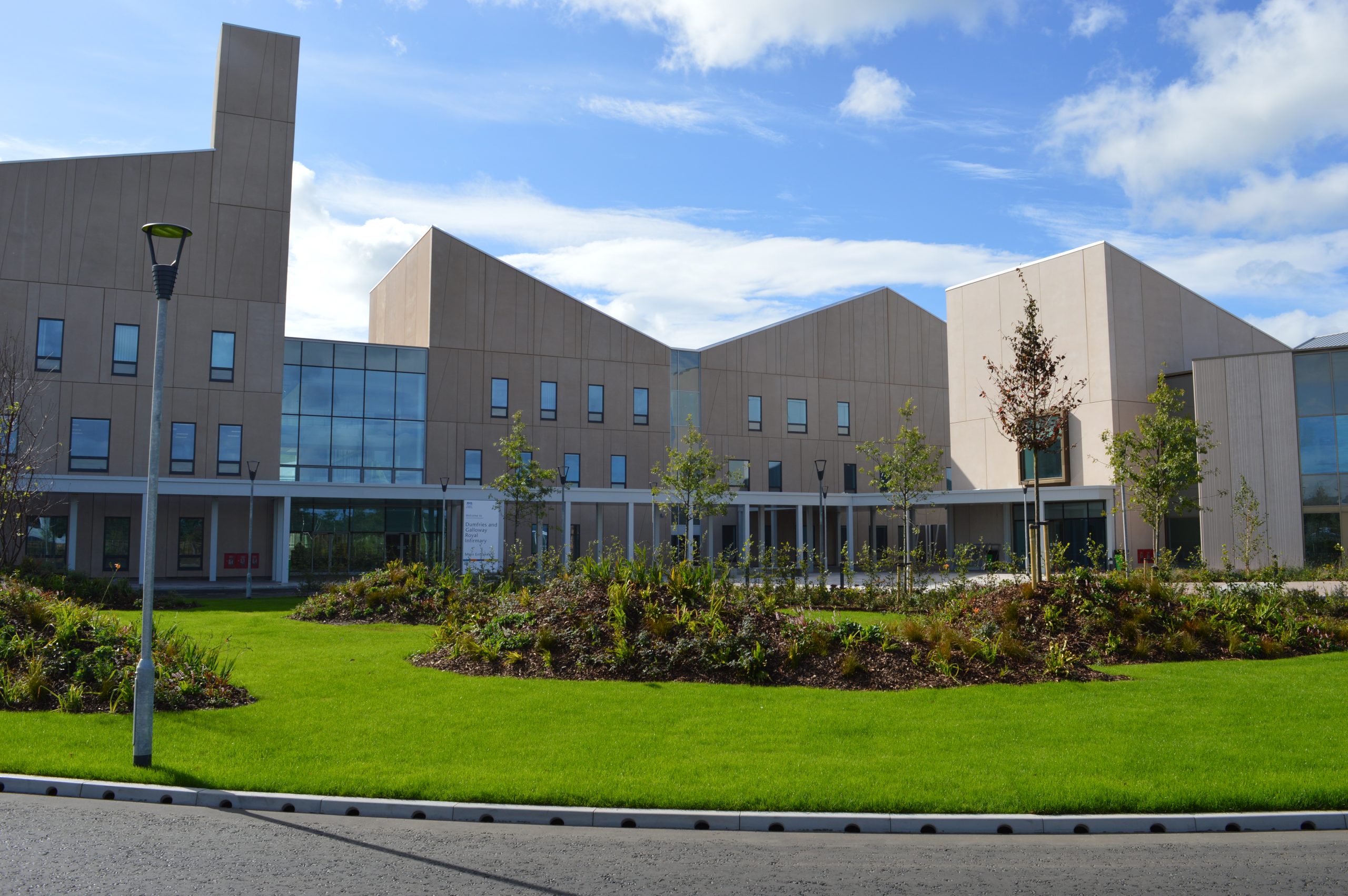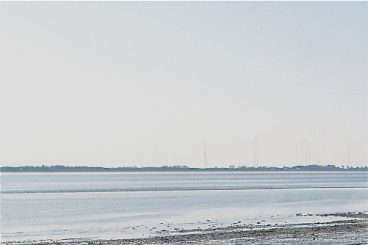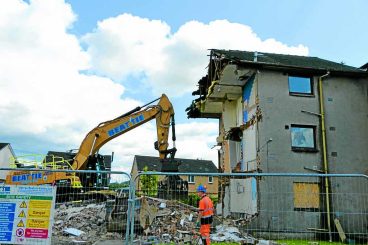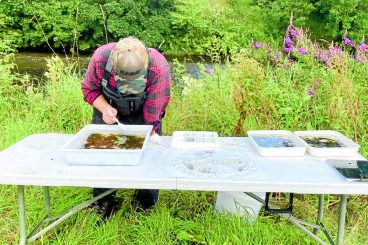HOSPITAL rooms which were originally designed to accommodate one patient at Dumfries and Galloway Royal Infirmary (DGRI) are being used to hold two people.
A new Healthcare Improvement Scotland report raised concerns about risk assessments and privacy for patients sharing single rooms.
It also stated that DGRI was operating at 103 per cent occupancy.
Inspectors noted that when single occupancy rooms were used by two patients that some did not have privacy screens available.
The report – which was the result of an unannounced inspection in March – read: “Due to the increased capacity within the hospital, several wards had increased the number of patients they cared for at any one time.
“This was achieved by creating additional beds in single occupancy side rooms. NHS Dumfries and Galloway describe this as ‘double occupancy’.
“We requested the NHS board’s policies and risk assessments, used in response to service pressures such as the increased capacity. Within these documents eight wards are identified across Dumfries and Galloway Royal Infirmary that can increase their capacity using double occupancy side rooms.
“We observed all patients within the double occupancy rooms had access to a call system in the form of a wrist alarm, and that wall mounted oxygen and electrical points were available. Ensuite facilities were available in all rooms.
“However, we observed the double occupancy created challenges in maintaining dignity and respect for patients as not all rooms had privacy screens available.
“In one ward where there was no screen available, we observed a patient being moved temporarily into the corridor by staff to allow the other patient privacy.
“The lack of screen availability was raised at the time of the inspection with the senior charge nurse who advised they were trying to source a screen locally to prevent having to move the patient out of the room.
“We raised this at the discussion session with senior managers who told us that additional screens were being ordered for the hospital. A requirement has been given to support improvement in this area.”
Other areas for improvement identified included person-centred care planning, the application of risk assessments for contingency beds and fire safety risk assessment and evacuation plans for the use of contingency beds and non-standard care areas.
Inspectors also raised concerns about the use of a closed circuit television camera (CCTV) situated in a patient interview room within the emergency department. Senior hospital managers responded quickly to this concern and took immediate action.
However, despite wards areas and departments being busy and experiencing staff shortages, inspectors noted that most areas of the hospital were “calm” and “well organised”, whilst interactions between patients, staff and relatives were “positive”.
The Healthcare Improvement Scotland report praised senior managers and staff teamwork in delivering care.
The report read: “We observed a high standard of facilities for patients and visitors, including an open and spacious concourse where patients could access outdoor walks.
“There were helpful and caring volunteers and reception staff at the entrance to the hospital to assist and direct people to the right areas.
Senior hospital managers displayed good oversight and understanding of their clinical areas and the wider system pressures across the hospital.
“We observed senior management teams exploring new ways to address the staffing challenges and high levels of patient occupancy.”
Responding, an NHS Dumfries and Galloway spokesman this week said: “A very robust and well developed surge plan had been developed, and the report recognises these policy documents and that all rooms have been operating in line with these plans – including access to alarms, oxygen and electrical points and en suite facilities.
“We do recognise that privacy has been an occasional issue, and one that we have worked to address along with ensuring that all patients in these circumstances absolutely meet the required criteria.”





















